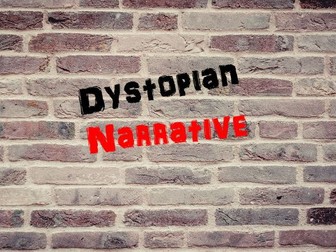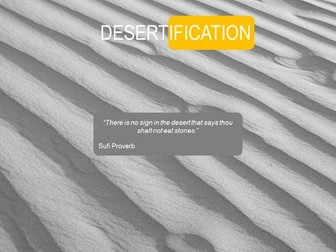Dystopian Narrative
Package includes:
1. Slide presentation (37 slides)
2. Visuals and prompts
3. 5 assignments, 2 summatives
4. Worksheets, assignment handouts and rubrics
Intro:
This unit gives students the opportunity to critically interpret a dystopian narrative focusing their analysis on the concept of otherness, a central theme of this genre. The concept is first explored in the earlier lesson in a close reading and the paraphrasing of a definition of the “Other.” This is followed by the writing of the essay in a multistage process, with each argument developed according to a five paragraph essay structure directing the students to examine the identity of the protagonist, the dystopian setting and the theme of otherness.


